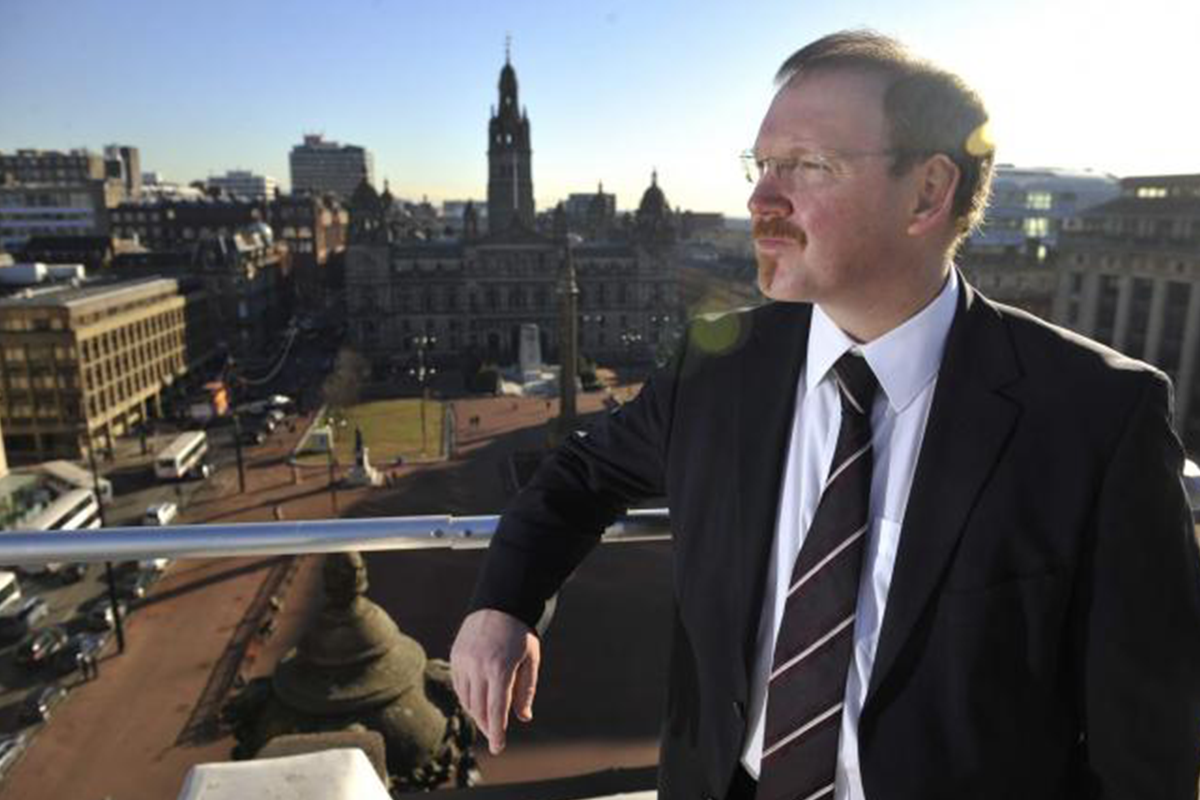Stuart Patrick: Wishful thinking for 2023

Stuart Patrick
Stuart Patrick, chief executive of Glasgow Chamber of Commerce, reflects on the recommendations made by the British Chambers of Commerce in a report on the UK’s Trade and Cooperation Agreement with the EU and discusses the potential impact of the Scottish Government’s legislation on the business community, as well as the ongoing economic recession and the possibility of unexpected developments bringing about its end.
Reading the British Chambers of Commerce report on the impact of the Brexit trade deal reminded me of the White Queen telling Alice that, as a young girl, she could believe as many as six impossible things before breakfast. It stimulated me into imagining three things that would make for a more prosperous economy in the new year but would also seem to be at the more optimistic end of the business wish list.
First up is, of course, the hope that the UK Government might act on all 24 of the recommendations the BCC made in its report to improve the effectiveness of the Trade and Cooperation Agreement the government signed with the EU two years ago. Chambers of Commerce in Britain play a direct role in the logistics of international trade and, as a result, Chamber members tend to be much more likely to export than the average British firm.
The basic message of the report is that, after two years of operation, the TCA is in desperate need of reform with over three quarters of exporting firms saying the deal is not helping to grow their business. Over half of firms trading in goods are finding it difficult to adapt to the new requirements and 45 per cent of services firms say the same. Nothing has been done in the past two years to tackle these issues and the BCC has made detailed recommendations, including measures to address food exports, import VAT, labour mobility, product conformity and the Northern Ireland Protocol. Those proposals look both to the short term and to 2026 when we’ll have the first scheduled formal review of the TCA.
With exports to the EU in decline, especially amongst smaller companies, it would be welcome if the UK Government increased its efforts to make the TCA work more effectively as quickly as possible.
Second on my list would be a year without the Scottish Government passing legislation unpopular with the Chamber’s members. The relationships between the business community and the government have been rockier than either would prefer and there are too many examples of measures that haven’t helped. The most recent would be the introduction of rent freezes for at least a six-month period. One can understand the concern that rents would increase during a period of severe inflation but the message to the housing industry was, in essence, that they are not to be trusted.
The list of issues I hear from members also includes the government’s proposals for a deposit return scheme, the transient visitor levy (otherwise known as the tourism tax), the workplace parking levy and the current consultation on restrictions on alcohol advertising. I wonder what message we are sending to potential whisky customers overseas if we choose to limit our most successful exporting industry from promoting its products here at home?
Finally, and most importantly, would be a wish for unexpected developments that could bring the current recession to an end to materialise more quickly than most respected economic forecasters suggest. The Scottish Fiscal Commission expects a recession lasting six quarters through to the end of next year and into 2023/24, with inflation peaking at around 11 per cent towards the end of 2022. Imagining what would change that forecast takes me into highly speculative territory, well beyond the control of either the UK or Scottish Governments. For example, might China’s economy recover more quickly now that their Zero-Covid policy has been so dramatically suspended? Might the current Covid wave wash through the country quickly and with less disruption than it appears? One can only hope so. And could there be an equally surprising resolution to the war in Ukraine? Taking pressure off energy prices cannot be the primary reason for wishing an end to the misery but it might be a small benefit.
The White Queen told Alice she should practice her skills in imagining impossible things. I plan to follow that advice.

Stuart Patrick is chief executive of Glasgow Chamber of Commerce







